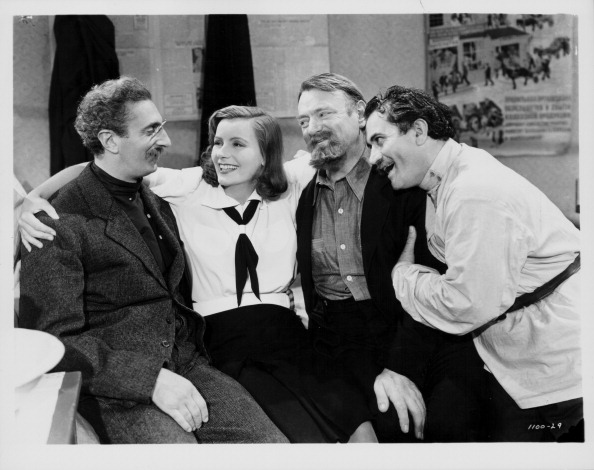
Faith & Thought
It’s that time of year when parish leaders are preparing to start again. Probably evaluations of various programs have already taken place, decisions have been made about what will be changed and what will be retained from last year. Each August I evaluate the Friday Film Festival program I have been moderating for over thirty-five years at the Immaculate Conception Center in Douglaston.
Over three hundred films have been shown at the Festival. I have to ask myself if those thousands of hours could have been spent in a better way than watching films. It is impossible to learn how deeply any of those films have influenced viewers in a positive way. I have to fall back on my belief that great films can influence people profoundly. The hundreds of films that I and those who assist me have shown are either classics or near-classics. Great art can play an exceptionally important role in our lives. I believe that, and so I think the presentation of the festival is worth any commitment required.
Recalling some of the previous festivals has reminded me of disastrous experiences that in retrospect seem amusing. At one point we were presenting films on a sixteen-millimeter projector. Neither I nor those who assisted me knew how to use the projector. Once, the figures appeared upside down. After we corrected that they appeared right side up but all the figures on the screen were moving backward. On the occasion we showed “Casablanca,” when Humphrey Bogart spoke, we heard Ingrid Bergman’s voice, and when she spoke, we heard his voice. At the end of that screening, a friend of mine came up to me and said: “Even viewing it this way, it is a great film!”
When I first began the festivals, I spoke, in my remarks after a film, about cinematic language such as lighting, camera angles and editing. Cinematic language was a prime interest because I was just beginning to learn about it and so I wanted to share what I was learning with the audience. I still refer to cinematic language in my remarks but I want to stress more the total impact of the film and its themes. I try to choose films that are going to challenge audiences in one way or another. For example, in the new festival, I have chosen “China Syndrome,” which dramatizes the danger of nuclear waste, and “Black Klansman,” which deals with racial prejudice. If a film deals with some religious topic, eventually it is going to appear in one of the festivals.
Paul Schrader’s “First Reformed” starring Ethan Hawke came out about a year ago. As soon as I saw this very provocative film about a minister struggling with his faith I knew that I wanted it to be part of some festival. Hawke turns in an outstanding performance as the minister who feels his faith slipping away. The first twenty minutes of the film rely heavily on the beginning of Ingmar Bergman’s masterpiece “Winter Light.” Schrader has been quite honest in interviews about borrowing from Bergman. I am anticipating a really interesting discussion following this film. I hope to make microphones available to members of the audience in the discussion period so that they will be able to take part in the discussion and easily make their comments heard.
Because the films in the festivals are serious dramas, I try to insert a comedy or musical. So in recent years, we have shown two MGM classics, “Singin in the Rain” and “The Bandwagon.” This fall there will be a classic comedy, Ernst Lubitsch’s “Ninotchka,” and a great musical, “West Side Story.”
Part of the festival will be a 1930s film by John Ford, “The Whole Town’s Talking.” I am guessing that no one who attends the festival will have seen this film. Ford is considered by some as the greatest American film director ever, so it is surprising that this film has been forgotten.
In preparing this column I came upon a comment that I had underlined in a book that I read many years ago. The book is Image and Likeness: Religious Visions in American Film Classics, edited by John R. May (Mahwah, New Jersey: Paulist Press, 1992, pp.200). The comment is from John R. May’s Introduction:
“The inexperienced moviegoer must, therefore, develop the analytical skills for conscious reflection upon the seductiveness of film, or at least be guided by knowledgeable critics to the best films available, those that are faithful to the values of our religious tradition. We are not concerned here, of course, with censorship of any sort, but the discrimination that leads with reason to the establishment of a canon of greatness—because, in their classical canon, films may finally become the most potent vehicle of teachers and parents for imparting the values of our heritage of greatness.” (p. 3)
Reading May, I am reminded just how important film festivals can be.
Lauder is a philosophy professor at St. John’s University, Jamaica. He presents two 15-minute talks from his lecture series on the Catholic Novel, every Tuesday at 9 p.m. on NET-TV.
